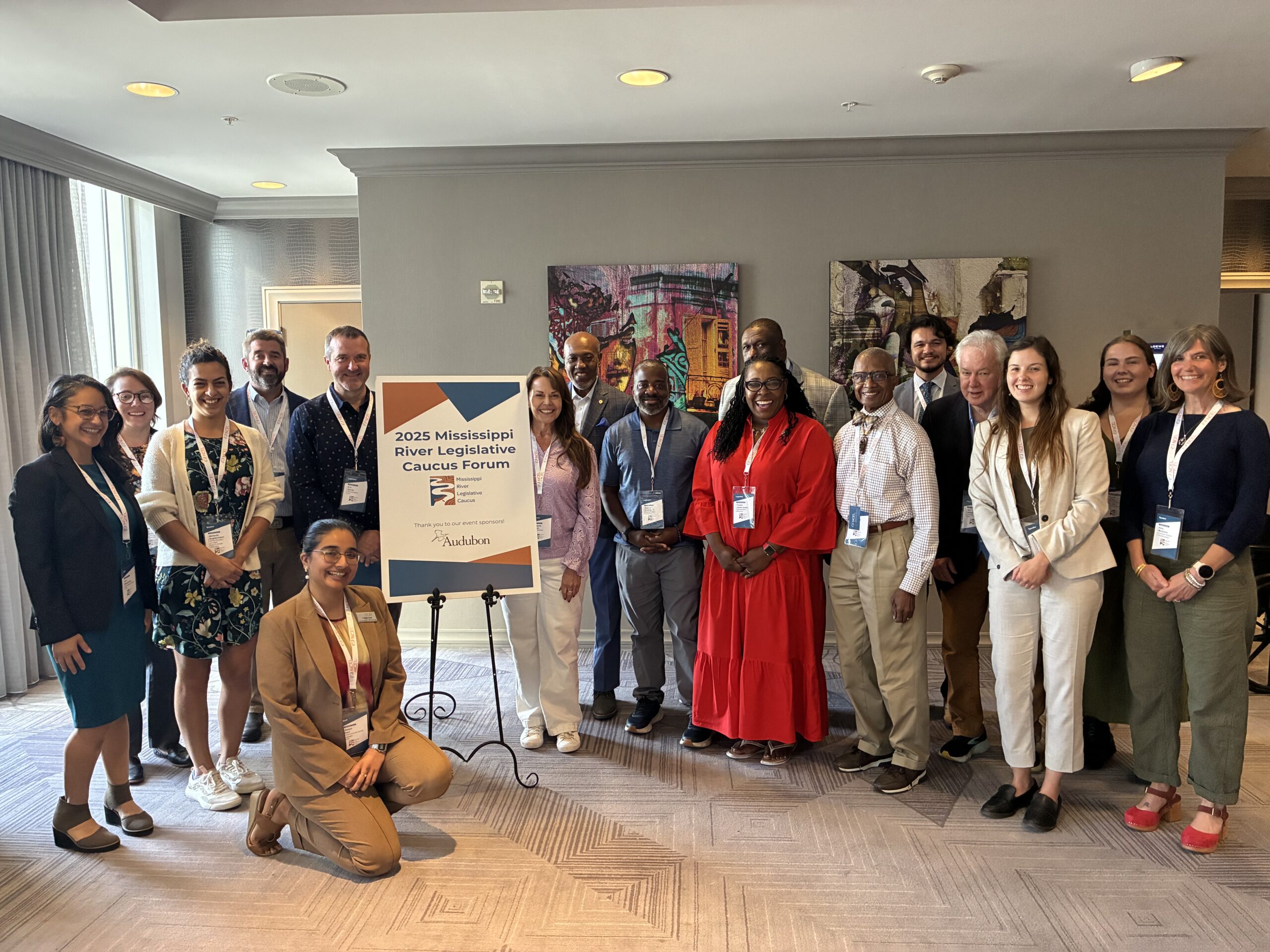
Blog
2025 Mississippi River Legislative Caucus Forum Recap
October 16, 2025
Overview
From October 2–4, 12 state legislators convened in New Orleans for NCEL’s 2025 Mississippi River Legislative Caucus (MRLC) Forum. The event brought together lawmakers from across the ten-state Mississippi River corridor with experts from national and regional organizations to explore shared challenges and opportunities for the watershed. The Forum fostered cross-state collaboration, elevated regional expertise, and reinforced the value of state leadership in shaping resilient policy that benefits the environment and local communities.
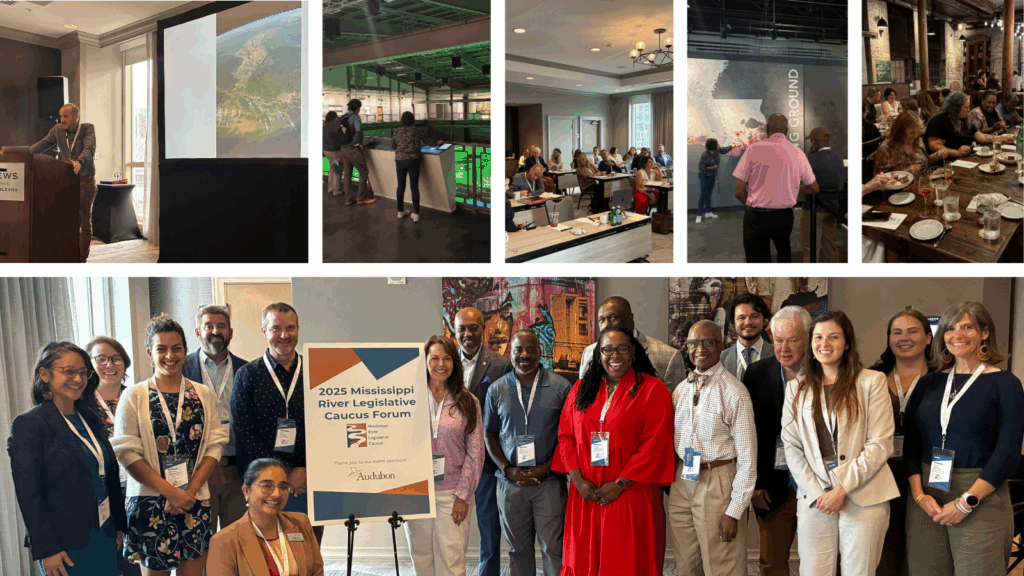
From Reception to River Tour: A Full Forum Experience
The MRLC Forum opened with an evening reception where attendees had the chance to connect with one another before formal sessions began. Sessions took place on October 3, opening with an introduction to MRLC, a recap of state policy movement in 2025, and a keynote presentation from Boyce Upholt – award-winning journalist and author of The Great River – on why the Mississippi is often considered a “lost river,” and how states can rekindle public connection to the Mississippi.
In-depth sessions followed throughout the day on topics ranging from water governance to coastal impacts and sustainable agriculture. The Forum concluded the next day with a tour of the LSU Center for River Studies, where attendees had a chance to reflect on takeaways from the Forum while learning more about the region’s ecological complexity via interactive exhibits.
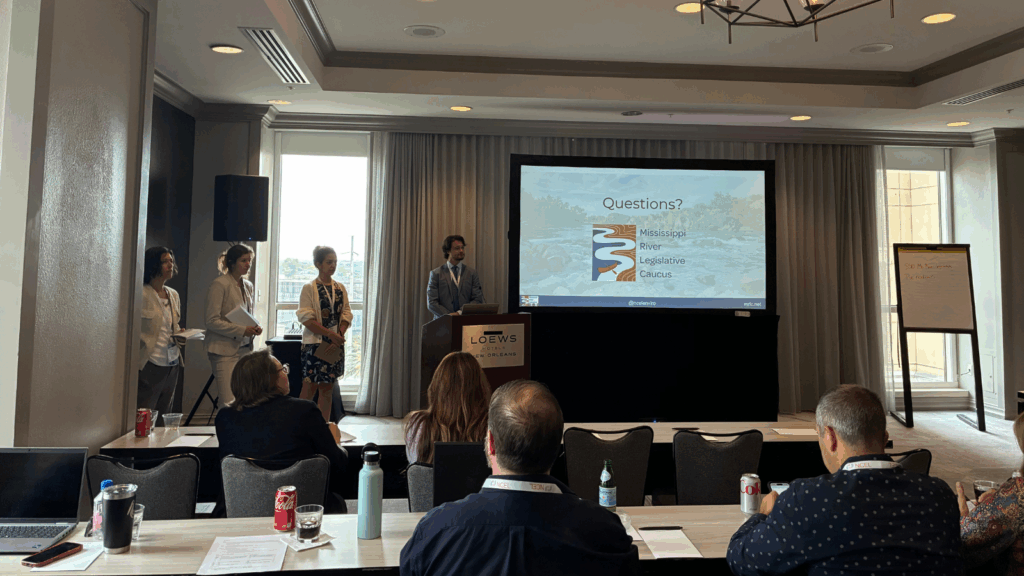
Water Governance: How States Can Improve Water Resource Management
The day’s first session spotlighted how states can improve management of water resources through science-based approaches. Panelists from the Environmental Defense Fund, Tulane Institute on Water Resources Law & Policy, and National Wildlife Federation shared insights on best practices to connect science with water management to address rising demands and environmental pressures in the region. Legislators heard about the value of shared data systems and coordinated planning while discussing the potential for interstate compacts to strengthen water governance at the regional, state, and local levels.
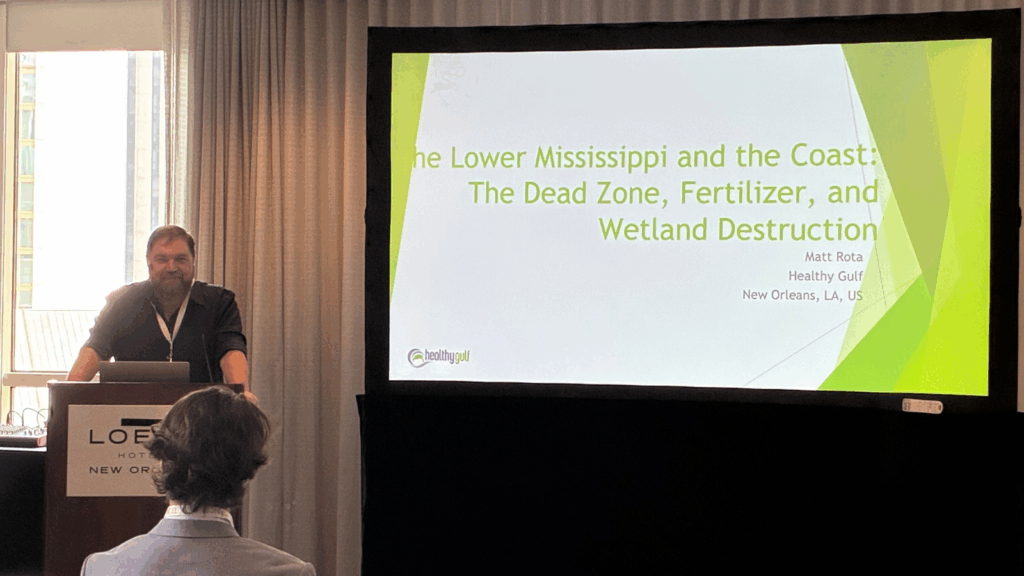
Coastal Impacts: How Mississippi River Issues Impact the Coastal States
In the day’s second session, panelists from the Coalition to Restore Coastal Louisiana and Healthy Gulf emphasized how upstream decisions affect downstream and coastal communities, particularly through nutrient pollution and sediment loss. Legislators considered how dredged sediment from upper river states could be repurposed to support restoration, and how upstream policies can account for downstream impacts. Legislators also learned that river management is more effective when states adopt protections beyond the Clean Water Act and create a strong science framework with capacity for modeling and monitoring. The session reinforced the interconnectedness of the river system and the value of shared responsibility.
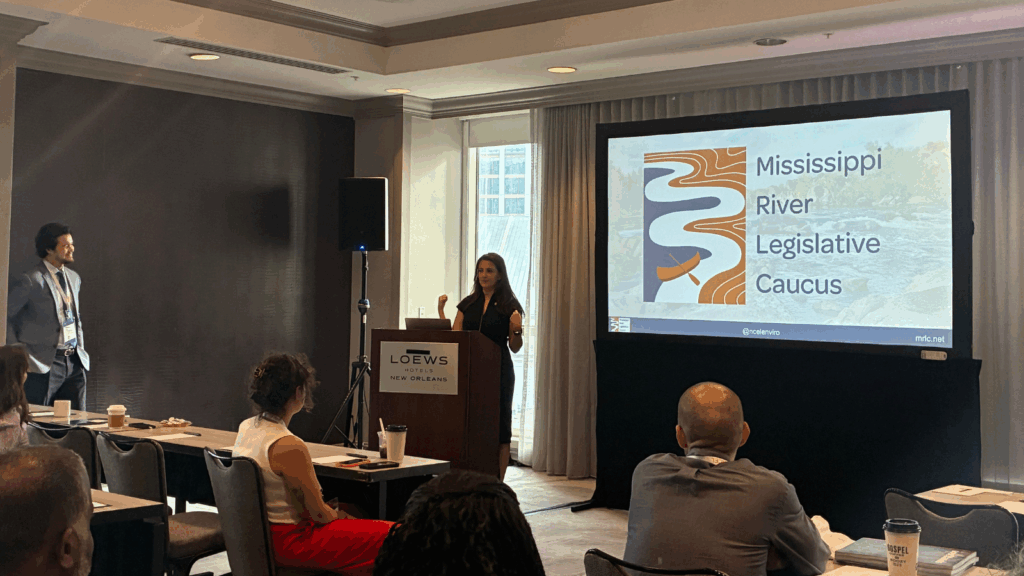
Wholistic Management of the River: Proposals and Discussion
The third policy session focused on wholistic river management, featuring leaders from the Mississippi River Network and The Water Institute. Panelists shared proposals from the NGO and federal sectors for managing the river as a whole, emphasizing the value of integrated strategies that span jurisdictions and disciplines to ensure a healthy watershed. The session ended with legislators discussing what whole-river management could look like in practice and the benefits it might provide to constituents.
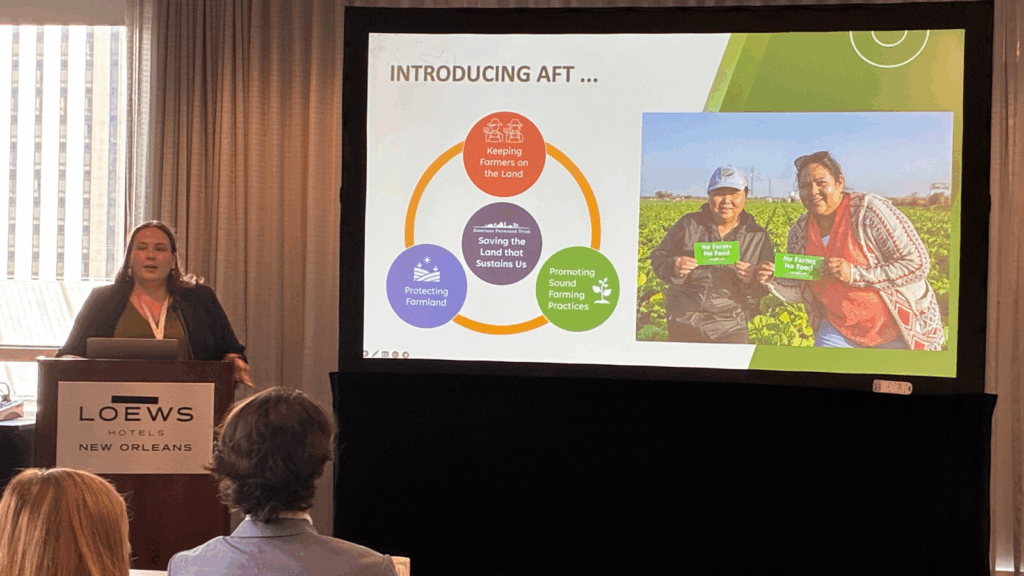
Infrastructure and Agriculture: Aligning Conservation with Community Needs
The final policy session of the MRLC Forum brought together experts from the National Audubon Society and American Farmland Trust to discuss how infrastructure and agriculture intersect along the river. Panelists shared updates on U.S. Army Corps of Engineers (USACE) infrastructure projects, solutions for a new watershed infrastructure framework that improves stakeholder engagement, and an overview of sustainable agriculture initiatives and policies. Legislators discussed ways to support farmers in adopting sustainable practices and how to ensure that infrastructure investments reflect both environmental and community priorities.
Looking Ahead
Throughout the MRLC Forum, legislators reaffirmed their commitment to protecting the Mississippi River as a vital ecological, cultural, and economic resource. NCEL is proud to empower this work by convening state leaders and fostering partnerships that transcend boundaries.
As states navigate a changing federal policy landscape and prepare for the 2026 legislative sessions, the MRLC Forum served as a space for bold ideas, peer-to-peer collaboration, and a shared vision for a healthy Mississippi River.